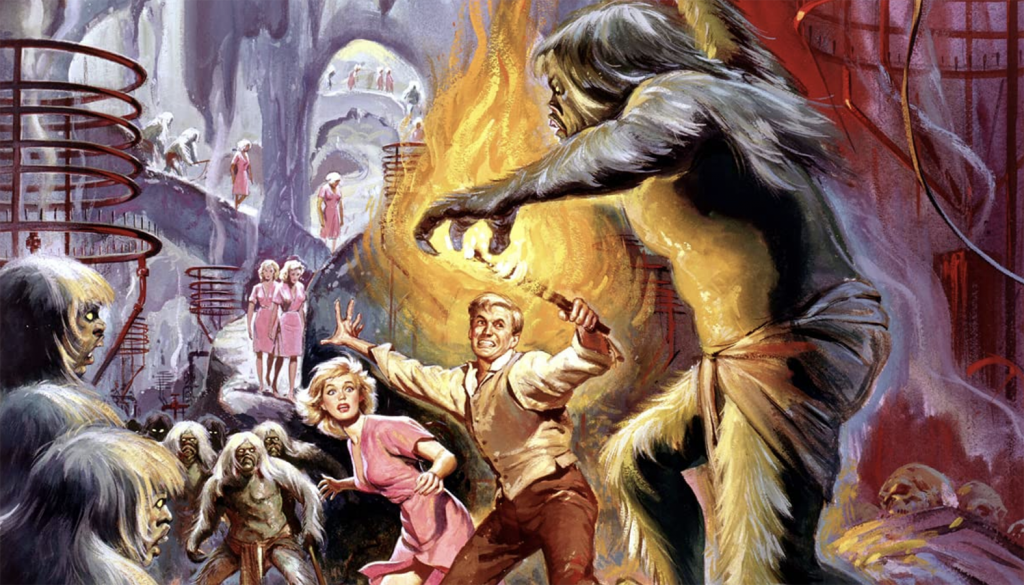The problem with predicting the future is that the future rarely, if ever, cooperates. Since the Ascension, people have been predicting the end is near. Well, some 2,000 years later there have actually been billions of “ends,” as the world’s population ebbs and flows through space and time.
Now, last year certainly had all the prime indicators of the end of the world, but alas here we are in 2021, for now. It’s just my luck that as I type these very words, I’m going to hear the brass section of the Angelic Choir blow their horns. No, it’s a car alarm.
Everybody seems to get the future wrong, except George Orwell. A quick Google search of movies set in the year 2021 is filled with examples. There was a big budget Brian DiPalma movie from the 1990s called “Mission to Mars.” The plot is exactly what the title suggests. Only problem is the film is set in the year 2021, and though we are closer to eventually getting to the Red Planet now, we are currently preoccupied scientifically with a microbe.
Again, the 1990s gave us the action thriller called “Johnny Mnemonic,” starring Keanu Reeves, also set in 2021. He’s a guy who has some kind of microchip embedded in his brain, which comes with a lot of pros and cons. Needless to say, things like microchips have advanced by 2021 with remarkable bounds, and when you think how “young” the very idea of microchips are, there probably will be a day when insertable chips, for good or ill, come into our everyday life.
My favorite “how to get the future wrong in three easy steps” remains the original version of “Blade Runner,” which is set in the very scary future of 2019 Los Angeles. The perennial rain and mutant robots never materialized in the real 2019, but sadly the sense of dystopia and breakdown of societal norms was too close for comfort.
But the granddaddy of all futuristic fantasy is H.G. Wells. And all future sci-fi writers who will write about things to come owe him a debt. Not sure if those of us who like a substantial dose of faith to go along with our science can say the same thing.
When I was a pup I loved the “soft science fiction” of H.G. Wells and Jules Verne. Not only were their stories about the fantastic, the mere fact they were written by men with both feet solidly planted in the 19th century gave these works extra exotic flair.
Well’s classic “The Time Machine” was always a favorite of mine. To show how advanced Wells was, he was not about to get himself trapped in an imagined future that people he knew might one day live to see. The time traveler in his novel travels 800,000 years into the future so this work won’t suffer the same “Google-fate” as so many other science fiction stories predicting things that never come true when the future catches up with their imaginations.
As I consumed his books as a young reader, I was blithely ignorant of the subtexts Wells was seasoning his work. Wells jettisoned his belief in an all-knowing, all-loving supreme being in favor of the Darwinist view of creation. And true to his new foundation, he began to believe in a lot of things scarier than anything his time traveler encounters in a world almost a million years into the future. He loved socialism so much that he saw Joseph Stalin only as a somewhat “too rigid” implementer of it. And he flirted for most of this public life with the evil of eugenics.
As a not-so-young reader, I see the passive and emotionless Eloi people Wells’ time traveler encounters in this faraway future in a different light. I see the menacing and savage subterranean Morlocks in a different light as well.
To Wells, without God, everything and everyone is slave to a cold and unfeeling universe. In later chapters of this book, Wells goes all in, giving us a dying planet where the only life left is monstrous.
Sans the eugenics thing, I hope, there are a lot of mainstream purveyors of popular entertainment and science fiction who happily inhabit Wells’ “godless” universe. But just as a God who knows everything must be amused by human beings’ attempts at prognostications, let’s hope that same God has patience and forbearance as we step through the threshold of a new year still wondering what the future may bring.

